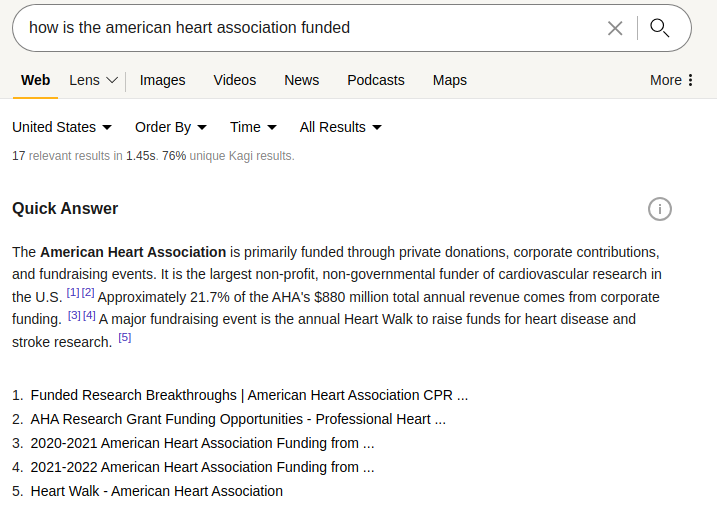Depends. Is the "quick answer" powered by a knowledge graph (like Google), or a large language model (like Bard/ChatGPT)?

If it's a knowledge graph, I kind of trust it to give reliable information:

From there, maybe you could build a meta knowledge graph that tracks which sources are linked to / have a controlling interest in what. Then use that to build ranks / information on the sites.
If it's actually powered by an LLM, you might need to start by building a knowledge graph instead 😛 (I'm not super familiar with the latest developments on AI/ML so I can't suggest a concrete plan if that's the case).
Since you're indexing everything anyway, it would also be useful to collate/compare articles and give a score for how much a given one deviates from the consensus. That alone would give me an idea of which one(s) I want to read from a list of results. You can also compare to articles with known biases as extra signals.
Anyway, I'm sure the actual experts at your company know better than a rando on the internet. I'll quit my rambling for now. 😃